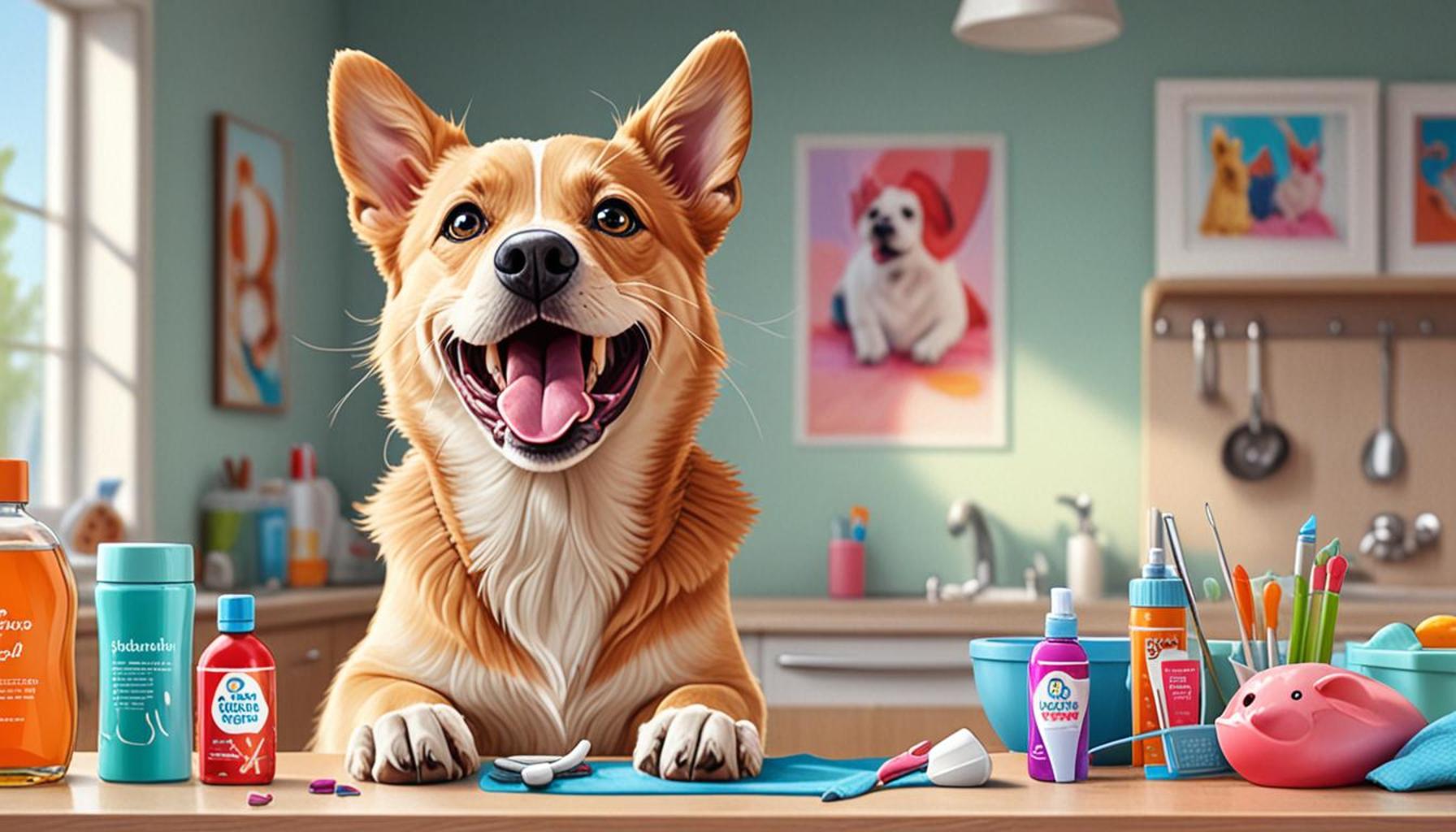The Importance of Socialization for the Emotional Health of Pets

The Impact of Socialization on Pet Wellness
Socialization is one of the most critical components contributing to the overall wellness of pets, significantly impacting their emotional health. A well-socialized pet tends to exhibit balanced behaviors and enjoys a more contented disposition. On the other hand, the lack of interaction can lead to anxiety and behavioral issues, which may severely affect a pet’s quality of life.
Confidence Building
Boosts confidence: One of the fundamental benefits of socialization is that it helps pets build confidence. Exposure to various environments, sounds, and other animals enables pets to feel secure and less fearful. For example, a dog that regularly visits a dog park becomes accustomed to the presence of other dogs and people, learning to navigate these interactions with ease. This confidence often translates into better behavior in other areas of life, reducing instances of aggression or fearfulness.
Reducing Anxiety
Reduces anxiety: Socialization also plays a pivotal role in decreasing anxiety levels in pets. When animals interact regularly with other pets and various people, they become less likely to engage in fear-based reactions. A cat, for instance, that is frequently exposed to visitors or gentle dogs may be more relaxed around new people, as opposed to a cat that has limited interactions and may display fear or aggression. Regular socialization creates familiarity and diminishes uncertainty, fostering a sense of security.
Adaptability and Flexibility
Enhances adaptability: The ability to adapt to new situations is another significant advantage of socialization. Pets that frequently experience novel settings—such as vet clinics, pet stores, or community events—are better equipped to adjust when faced with unfamiliar circumstances. For instance, a dog that participates in obedience classes with varied stimuli, including new environments and strangers, is often more comfortable when traveling or moving to a new home. This kind of adaptability greatly improves their overall quality of life, making them happier and less prone to stress.
Practical Opportunities for Socialization
In the United States, there are numerous opportunities for pets to socialize, such as dog parks, training classes, and community pet events. Each interaction presents a unique chance for pets to acquire vital social skills. These encounters are not simply about play; they are essential for laying the groundwork for emotional stability. For example, many cities host “yappy hours” at local breweries where dogs can mingle while their owners enjoy a beverage. Such events not only foster social interaction but also create a community for pet owners.

Conclusion
Understanding the importance of socialization for pets allows us to pave the way for a healthier, happier life for our furry companions. As responsible pet owners, actively facilitating these experiences is essential. Investing time in your pet’s social interactions can lead to significant improvements in their emotional health and overall well-being. The benefits of socialization are profound, contributing to both behavioral stability and the development of a well-rounded, happy pet.
DISCOVER MORE: Click here to learn how you can make a difference
Building Social Skills in Pets
Socialization is not just a fun aspect of pet ownership; it is a crucial ingredient for cultivating emotional well-being and stability in animals. Social skills developed through interactions with other pets and humans can dramatically shape a pet’s behavior and emotional intelligence. This is particularly vital during a pet’s formative months; studies indicate that early social exposure can significantly influence their temperament as adults.
The Developmental Window
Critical phases: Pets, especially dogs, undergo critical developmental stages when their social experiences can define their future behavior. For puppies, socialization should ideally begin between 3 and 14 weeks of age, a period when they are most receptive to new experiences. For example, a well-socialized puppy who meets other dogs, experiences different environments, and encounters various sounds is less likely to develop anxiety or fear-based responses as they grow older. Research has shown that a puppy that is properly exposed to diverse sights, sounds, and experiences can become a more adjusted adult, demonstrating fewer behavioral issues. In contrast, pets that lack early socialization may be more prone to anxiety issues, leading to challenges in both everyday life and future interactions.
This critical window is not exclusive to dogs, as kittens also benefit significantly from early socialization. Kittens, too, should be exposed to various environments, people, and other animals during their first 9 weeks of life to develop social and emotional stability.
Long-term Benefits
Positive reinforcement: The long-term benefits of a well-socialized pet are undeniable. Pets who have been exposed to a variety of social settings often demonstrate:
- Improved Behavior: Fewer instances of aggressive behavior or fearfulness are noted, leading to safer interactions with both pets and humans.
- Stronger Bonds: Enhanced relationships with their owners and other pets contribute to a loving household atmosphere.
- Better Adaptability: Pets exhibit easier adjustment to new experiences, reducing stress during travels or relocations.
For instance, a cat that interacts with different people and safe dogs from a young age is likely to become more comfortable during vet visits and family gatherings. This adaptability not only benefits the owner but also contributes positively to the animal’s mental health. Moreover, a well-socialized pet can offer greater enjoyment in various environments, from dog parks bustling with activity to vacation homes where quick adjustments are crucial.
Socialization Techniques
Proactive engagement: Owners play a critical role in their pets’ socialization. Here are several effective techniques to consider:
- Enroll in training classes: These provide an excellent opportunity for structured social experiences. Classes often involve group settings where dogs and puppies can interact while learning commands, which is beneficial for their training.
- Frequent outings: Regularly visiting pet-friendly locations, such as parks, cafés, and markets, offers exposure to various stimuli. Each trip can introduce a variety of sights, sounds, and smells for your pet, enhancing their social adaptability.
- Organize playdates: Arranging for pets to interact with other friendly animals can help develop crucial social skills. These casual meet-ups can provide a safe space for pets to play and learn appropriate social behaviors.
- Introduce new environments gradually: Exposing pets to different settings helps mitigate anxiety associated with unfamiliar situations. For example, taking gradual trips to the beach or a busy shopping area can help a pet grow accustomed to crowds and new experiences.
The implementation of these proactive strategies not only fosters social skills but also builds a foundation for emotional resilience, contributing significantly to a pet’s overall well-being. Ensuring pets are well-socialized can create a happier and more secure environment for both the pet and their owner, promoting a harmonious life together.
| Category | Importance |
|---|---|
| Physical Activity | Socialization often includes playtime with other pets, which promotes physical health through exercise. |
| Behavioral Development | Interacting with various pets and humans helps animals learn proper social behaviors, reducing aggression and fearfulness. |
| Reduced Anxiety | Regular social interaction diminishes separation anxiety and promotes emotional stability. |
| Enhanced Bonding | Socialization reinforces the bond between pets and their owners, leading to stronger relationships. |
In examining the benefits of socialization for pets, it’s clear that the impact extends far beyond mere companionship. Engaging with other animals fosters physical activity, which is crucial in maintaining a pet’s overall health. Animals that socialize regularly participate in play, leading to increased stamina and improved cardiovascular health.Additionally, socialization is a key factor in behavioral development. Through interactions, pets learn vital social cues that help them navigate their environments more effectively, mitigating issues such as aggression or excessive shyness. This process is crucial, especially for younger pets, as it sets a precedent for their future interactions.Furthermore, socializing can significantly help in reducing anxiety. Many pets experience stress when alone or faced with unfamiliar situations. Regular engagement with others provides comfort and assurance, building confidence in their environments. Engaging with various stimuli also generally promotes a healthier emotional landscape for our furry companions.Finally, we cannot overlook the profound effect of socialization on bonding. A well-socialized pet tends to form deeper connections with its human caregivers. These bonds enhance the emotional health of both the pet and the owner, creating lasting, joyful relationships. By understanding these multifaceted benefits, pet owners are encouraged to actively prioritize socialization in their companions’ daily routines.
DISCOVER MORE: Click here to learn about the latest trends in sustainable pet supplies
Challenges and Misconceptions of Socialization
Despite the clear benefits of socialization, many pet owners face substantial challenges and hold misconceptions that can hinder their pets’ emotional health. Understanding these challenges is key to creating a more socially adept and emotionally stable pet.
Common Misconceptions
Fear of Over-socialization: A frequent misconception among pet owners is that too much socialization can lead to overexcited or aggressive behavior. In reality, proper socialization involves managing interactions, ensuring that pets feel secure and relaxed. It is essential to strike a balance; overwhelming a pet with excessive stimuli can lead to stress. Instead of avoiding social interactions altogether, pet owners should aim for controlled exposures that help pets acclimate to various environments.
Assuming Socialization Is Optional: Another misunderstanding is that socialization is merely a nice-to-have rather than a fundamental requirement for emotional health. The reality is that pets, like humans, need companionship and positive interactions to thrive. Dogs and cats are inherently social animals; deprived of social contact, they may display signs of depression, anxiety, or behavioral issues. Ensuring consistent social interactions is vital for a pet’s emotional well-being.
Barriers to Effective Socialization
<pTime Constraints: Many pet owners lead busy lives and may not prioritize socialization due to time constraints. However, even short structured social interactions can be highly beneficial. For instance, a quick trip to a pet-friendly café or hosting a playdate with a neighbor’s pet can offer crucial social exposure without consuming excessive time.
Negative Past Experiences: Some pets may display fear or aggression towards others due to previous negative experiences. In such cases, adopting a gradual approach tailored to the individual pet’s needs is essential. Engaging with skilled trainers or behaviorists can facilitate a smoother re-acclimatization process. These professionals can provide insights into effective strategies to rebuild a pet’s confidence while navigating social situations.
Resources for Pet Owners
For those seeking to improve their pet’s social skills, several resources are available.
- Training Classes: Beyond basic obedience, many training centers offer specialized classes aimed at socialization, helping pets become comfortable around other animals and people.
- Online Forums and Communities: Engaging with online pet forums can provide valuable advice, experiences, and insights from other pet owners who have faced similar challenges.
- Veterinary Behavioral Specialists: Consulting with a veterinarian who specializes in animal behavior can offer tailored strategies for pets who have specific socialization hurdles.
Furthermore, leveraging technology through mobile applications that connect pet owners for walks, playdates, or group outings can facilitate more frequent social interactions while fostering friendships among pet owners.
Ultimately, addressing misconceptions and understanding the barriers to socialization will empower pet owners to create enriching experiences for their pets. Through dedicated efforts, the emotional surfacing of pets can improve significantly, paving the way for more fulfilling, happy lives. In a world that increasingly understands the link between socialization and emotional health, pet owners must embrace their roles as responsible guardians working diligently to nurture their pets’ social skills.
DISCOVER MORE: Click here to learn about the rising trend in pet hygiene and beauty products
Conclusion: Nurturing Emotional Well-Being Through Socialization
In conclusion, the importance of socialization for the emotional health of pets cannot be overstated. As inherently social creatures, pets thrive on positive interactions with their environment, other animals, and, most importantly, their human companions. By recognizing the significance of socialization, pet owners can mitigate potential behavioral issues, such as anxiety and aggression, and promote a well-rounded, emotionally stable companion.
Moreover, understanding and debunking common misconceptions—such as the fear of over-socialization and the belief that social interactions are optional—empowers pet owners to take an active role in fostering their pets’ emotional well-being. By prioritizing structured and balanced social experiences, pet owners can help their pets build confidence and resilience in various situations.
The benefits of socialization extend beyond the pet itself, creating a harmonious environment where both pets and their owners can enjoy fulfilling relationships. Utilizing available resources, such as training classes and community forums, can enhance the socialization process, proving invaluable in navigating the challenges that may arise. The integration of technology, such as apps designed for pet meet-ups, further facilitates these connections, broadening the social horizons for pets and their owners.
As we continue to deepen our understanding of the link between socialization and emotional health, it becomes evident that nurturing our pets’ social skills is not merely an option, but a fundamental responsibility. Embracing this role and committing to enriching social experiences can lead to happier, healthier lives for our beloved pets—a true testament to the bond we share with them.


